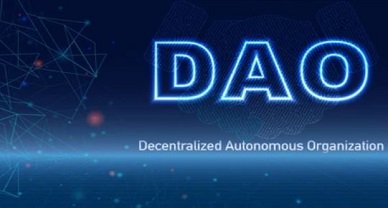ISO Certification
The International Organization for Standardization (ISO) is an independent, non-governmental international organization with a membership of 167 national standards bodies which develops and publishes technical, industrial and commercial standards worldwide.
WHAT IS ISO CERTIFICATION?
As it pertains to ISO standards, certification is the assurance of a certifying body that a service, product or system meets a requirement of a requisite standard.
According to ISO, the phrase “ISO certification” should never be used to indicate that a product or system has been certified by a certification body as conforming to the ISO standard. Instead, ISO suggests referring to certified products or systems using the full identity of the ISO standard.
For example, instead of “ISO Certified” ISO recommends using the phrase “ISO 9001:2015 Certified” this fully identifies the standard being certified, including version in this case, the version of ISO 9001 released in 2015.
There are so many different ISO standards out there; it can sometimes be difficult to understand which ones are best suited for your business. While some are industry specific, many of the most popular standards are general and can be applied to an organization regardless of the sector.
There are several types of ISO certification, some of which are listed below:
ISO 9001:2015 Quality Management System
ISO 10002- Complaint Management System
ISO 2001:2015 Environment Management System
ISO 37001-Any- Bribery control systems
ISO 31000-Risk Management
ISO 27001 Information security Management System
ISO 26000 Social Responsibilities
OHSAS 18001-Occupational Health & Safety Management System
ISO 28000- Security Management
ISO 22000-Food Safety Management
SA 8000-Social Accountability
ISO 50001-Energy Management
SO/IEC17025-tessting and calibration laboratories
SO 13485-Medical devices
ISO 639-Language codes
ISO 4217-Currency codes
ISO 3166-Country Codes
ISO 8601- date and time format
ISO 20121-Sustainable events
THERE ARE SOME POPULAR STANDARD ARE AS FOLLOWS:
ISO 9001:2015 Quality Management System
ISO 9001:2015 is also known as “Quality Management System (QMS)”. It has replaced the old ISO 9001”2008 standard. The clauses of the ISO 9001:2015 standard address almost every aspect of business, so implemented effectively it streamlines all of your business processes. A Quality Management System Certificate (ISO 9001:2015 Certification) is based on an audit of your QMS documentation, procedures, policies and its actual implementation in your day-to-day business activities. This minimizes the chance of product failures and recalls or lack of services and ensures that your customers can buy with confidence.
ISO 14001:2015 Environmental Management System
ISO 14001:2015 specifies the requirements for an environmental management system that an organization can use to enhance its environmental performance. ISO 14001:2015 is intended for use by an organization that seeks to manage its environmental responsibilities in a systematic manner that contributes to the environmental pillar of sustainability.
ISO 14001:2015 helps an organization achieve the desired results of its environmental management system, which provides value to the environment, the organization itself, and interested parties.
OHSAS 18001:2007 Health & Safety Management System
This particular standard states what is needed to be done to implement an occupational health & safety management system. It comprises of policies, processes, plans, practices and records that define the rules about health and safety. The standards agreed on 2007 are intact and still being followed by all industries alike.
ISO 22000:2018 Food Safety Management System (FSMS)
ISO 22000 this standard specifies requirement for the a food safety Management system( FSMS) to enable an organization that directly or indirectly involved in the food chain to plan, implement, operate, maintain and update a FSMS providing Products and services that are safe, in accordance with their intended use. This standard was published in 2018 and is being followed by many industries.
ISO 26000:2010 Social Responsibilities
For the business and organizations committed to operating in socially responsible way, there’s ISO 26000:2010
It provides the guidance to those who recognize that respect of the society and environment is a critical success factor. As well as being the “right thing” to do, application of ISO 26000 is increasingly viewed as a way of assessing an organization’s commitment sustainability and its overall performance.
ISO 26000:2010 provide guidance rather than requirements so cannot be certified to unlike other well known ISO Standards. Instead, it helps clarify what social responsibility is, helps business and organizations translate principles into effective actions and share best practices related to social responsibility, globally. It is aimed at all type of organizations regardless of their activity, size or location.
ISO 31000-Risk Management
The log-term success of the organization relies on many things, from continually assessing and updating their offering to optimizing their processes. As if this weren’t enough of a challenge, they also need to account for the unexpected in the managing risk. That’s why we were developed ISO 31000 for Risk Management.
In addition to addressing operational continuity, ISO 31000 Provides a level of reassurance In term of economic reliance, professional reputation and environmental and safety outcomes. In other word of uncertainty, ISO 31000 Is tailor- made for any organization seeking clear guidance on risk management.
ISO 37001-Any- Bribery Management systems
Transparency and trust are the building blocks of any organization’s credibility. Nothing undermines effective institutions and equitable business more than bribery, which is why there’s ISO 370001.
It’s the International Slandered that allows organizations of all type of prevent, detect and address bribery by adopting an anti bribery policy, appointing a person to oversee anti-bribery compliances, training, risk assessments and due diligence on projects and business associates,
Implicating financial and commercial controls and instituting reporting and investigation procedures.
Providing Globally recognized way to address a destructive criminal activity that turns over a trillion dollars of dirty money each year, ISO 37001 address one of world most destructive and challenging issue head on and demonstrates a committed approach to stamping out corruption.
ISO 50001 Energy Management
For organizations committed to addressing their impact, conserving resources and improving the bottom line through efficient energy management
This ISO standard provides a practical way to improve energy use though the development of energy management systems (NMS).
ADVANTAGES OF ISO CERTIFICATION
- International credibility:
- Customer satisfaction
- Government tenders
- Business efficiency
- Product Quality
- Marketability
Author– Mr. Ajay Kacher (M.Com, LLB, CS) is a Legal Associate in IP & Legal Filing. In case of any queries please contact/write back to us at support@ipandlegalfilings.com.




